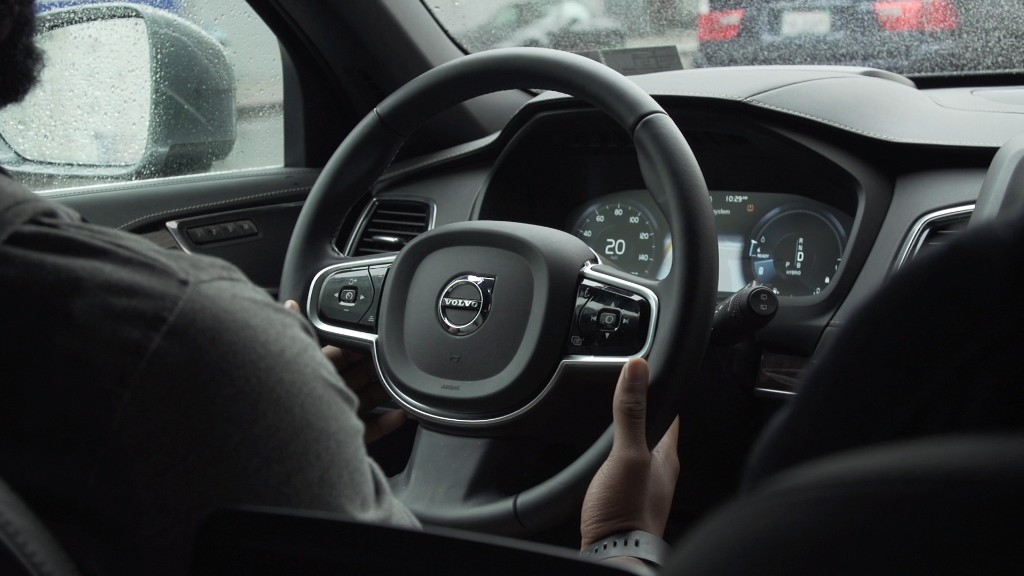
The California government, long cautious with self-driving cars, has changed its tune.
The state DMV issued proposed rules for the testing and deployment of fully self-driving vehicles Friday. The news appears to clear the way for cars with an empty driver's seat to operate on state roads by year's end.
"This is a big deal," said Jason Orr, an attorney who follows autonomous vehicle law at O'Melveny & Myers. "Despite being more sensitive than other states, at the end of the day, it will potentially result in widescale deployment of autonomous vehicles."
California's DMV had long frustrated the self-driving car industry, which felt state regulators were holding back innovation that could improve public safety. The DMV previously missed a deadline for autonomous vehicle rules. And when it released rules in December 2015, it excluded fully self-driving vehicles, citing safety concerns.
Over the years, some companies, such as Google (GOOGL) and Uber, resorted to shifting tests outside their home state.
Related: 2016: A tipping point for excitement in self-driving cars
The California DMV has wrestled for years with how to comfortably sign off on a self-driving car operating on public streets. While experts agree that self-driving cars will eventually be far safer than human drivers, autonomous vehicles will not immediately be flawless or even better than a human. Governments worldwide are struggling with how to certify that a fully autonomous vehicle allowed to drive on public roads is safe enough.
The DMV previously considered using a third party to examine vehicle data, or external test tracks for autonomous vehicles. But Friday it revealed it would allow manufacturers to self-certify that their vehicles are safe, a move that follows in the footsteps of the current federal government plan for autonomous vehicles.
In a sense, the licensing process for a robot that wants to drive on California roads is more lax than what a human driver seeking a license must go through. Humans must pass a state driver's test. The makers of self-driving cars must just provide a safety assessment letter to the state.
Related: Self-driving cars could eliminate urban crashes
In a briefing with reporters, California DMV deputy director Brian Soublet downplayed the different approaches to putting humans and robots on public roads.
"It's a minimal test. It's basically seeing that they have the skills to operate the vehicle," Soublet said the driver's test for humans. "And there's all of the post-licensing discipline that goes with it. We believe that that same type of a structure is being established here."
Just as the DMV can revoke a human's license, it can also revoke a company's ability to operate self-driving cars on state roads, under the proposed rules. The DMV will exercise this right if it sees recurring safety issues with a vehicle, according to Soublet.
The DMV also took a step toward embracing new vehicle forms, such as a car without a steering wheel or pedals. Under its proposed rules, the DMV will allow cars without a steering wheel or pedals, provided that the maker has the approval of the National Highway Traffic Safety Association.

